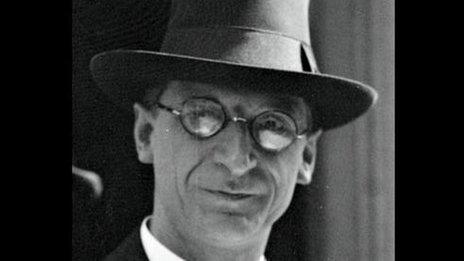The Army general who charmed his IRA kidnappers
- Published
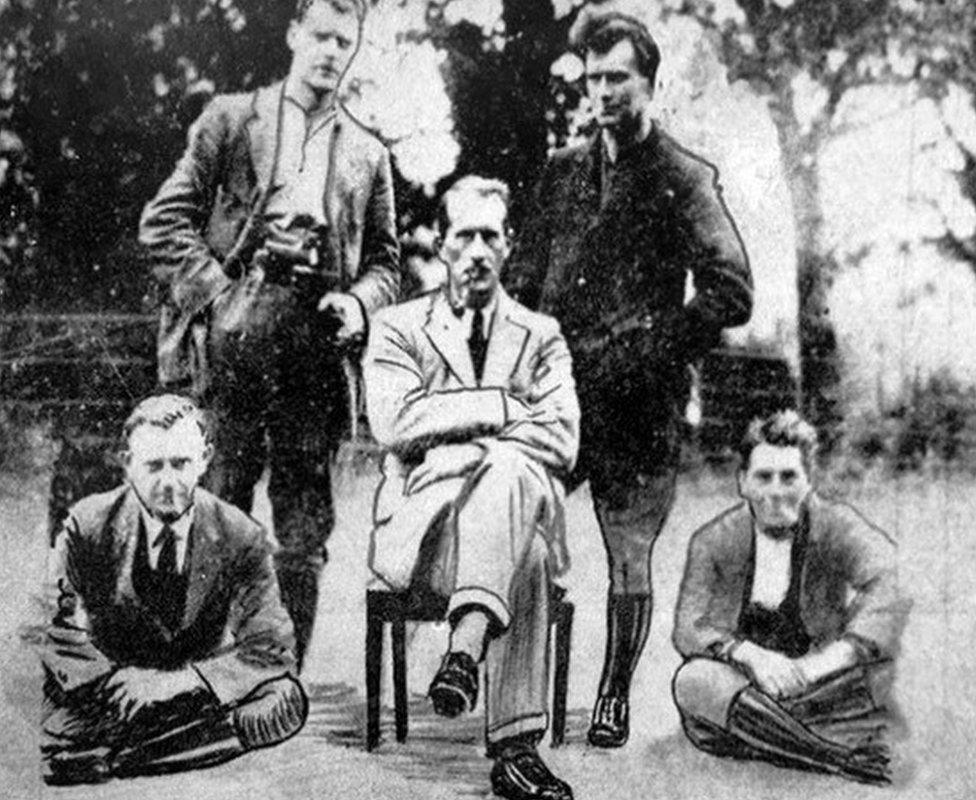
Brig Gen Cuthbert Lucas is pictured sitting down in this "proof of capture" photograph

The discovery of a collection of letters sent by a British army officer held captive by the IRA has helped shed further light on an intriguing episode in the Irish fight for independence.
Brig Gen Cuthbert Lucas was fishing on the River Blackwater near Fermoy on 26 June 1920 when he was captured by the IRA, becoming the highest ranking soldier to suffer such a fate.
This came at what was a bloody time for Ireland: about 1,400 people were killed during the Irish War of Independence, among them 261 British soldiers, 361 British police, some 550 IRA volunteers and 200 civilians.
Between 1919 and 1921, atrocities took place on both sides.
In one notorious episode, British police fired indiscriminately into a Gaelic football crowd, killing 12 people.
The IRA targeted soldiers and police, killing British officer Maj Geoffrey Compton-Smith, while also kidnapping and killing 60-year-old civilian Maria Lindsay, who was seen as an informer.
It was during this period that Lucas, from Hertfordshire, was sent to Ireland to take control of an unruly British regiment.
The Boer War and World War One veteran must surely have feared the worst when he was captured.
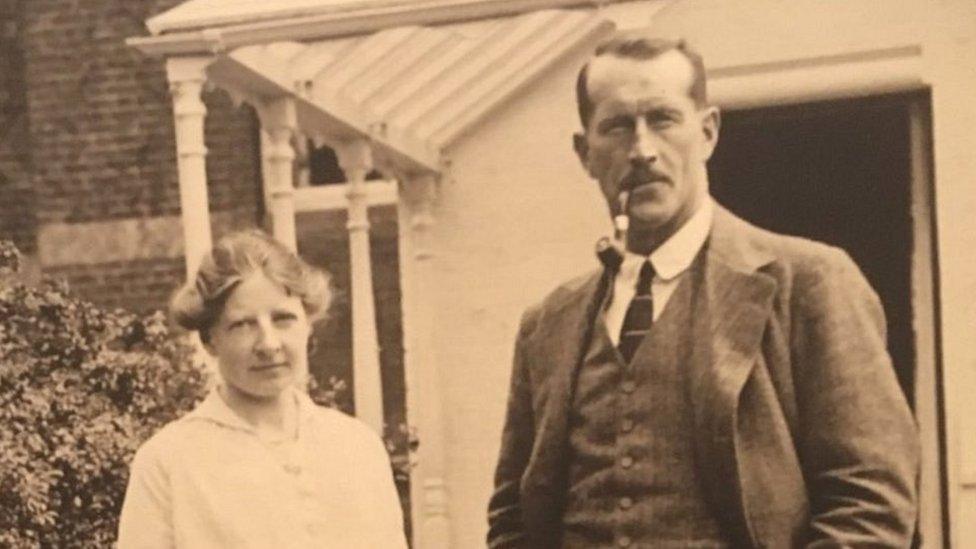
Poppy Lucas was able to write to her husband during his captivity
But as it transpired - and as the letters shown by his granddaughter Ruth Wheeler to the BBC's Antiques Roadshow help to demonstrate - Lucas would strike up a rapport with his captors, supping whiskey with them and playing endless games of cards.
In one letter to his wife in England, Lucas describes how he is being "well looked after and well treated, but very bored".
Perhaps to alleviate the boredom, he demanded - and received - an officer's prisoner-of-war allowance of a bottle of whiskey a day.
And despite the fact that he was being hidden by the IRA from British forces, he was given permission to indulge in various outdoor activities.
"There were croquet matches, tennis lessons, salmon poaching and, on my grandfather's request, he went out in the fields and 'helped save the hay'," said Mrs Wheeler.
"He hated to sit around and do nothing and needed his 'healthy exercise'."
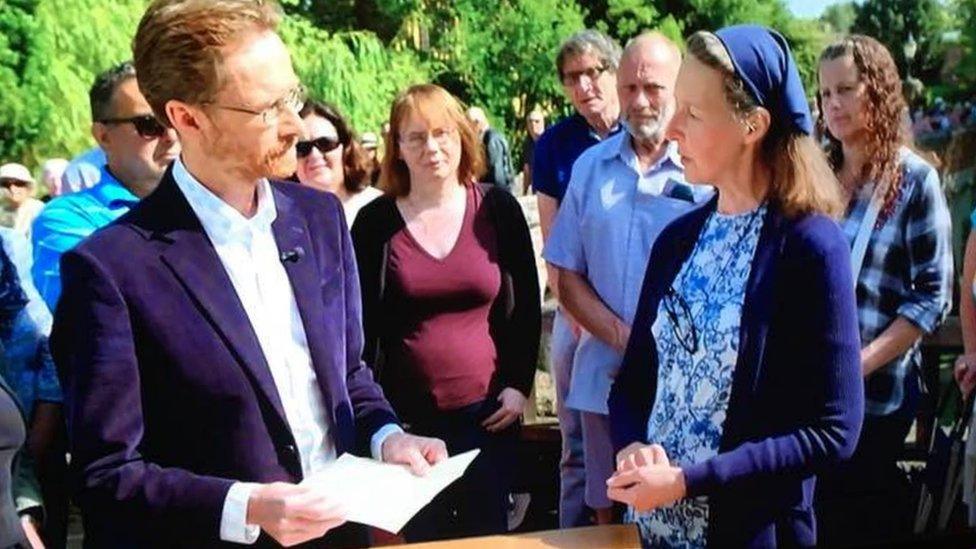
The letters were taken to the Antiques Roadshow by Lucas's granddaughter Ruth Wheeler, who says he was seen as "too nice to execute"
She said: "The rapport between the IRA men and my grandfather, whilst each side keep to their roles, is amazing.
"They played cards into the early hours, which my grandfather tried to conceal from my grandmother in his letters, as she wouldn't approve."
Lucas's wife Joan - also known as Poppy or Pip - was pregnant at the time of his capture, and family members tried to hide the news from her.
Mrs Wheeler said: "She was staying with her in-laws and, when they got news that her husband had been kidnapped, they sent her to London.
"One morning she was feeling sick, so she called for the nurse who came with a bowl, and underneath the bowl was a newspaper with the headline 'General Lucas kidnapped'.
"She went into premature labour and a baby was born."
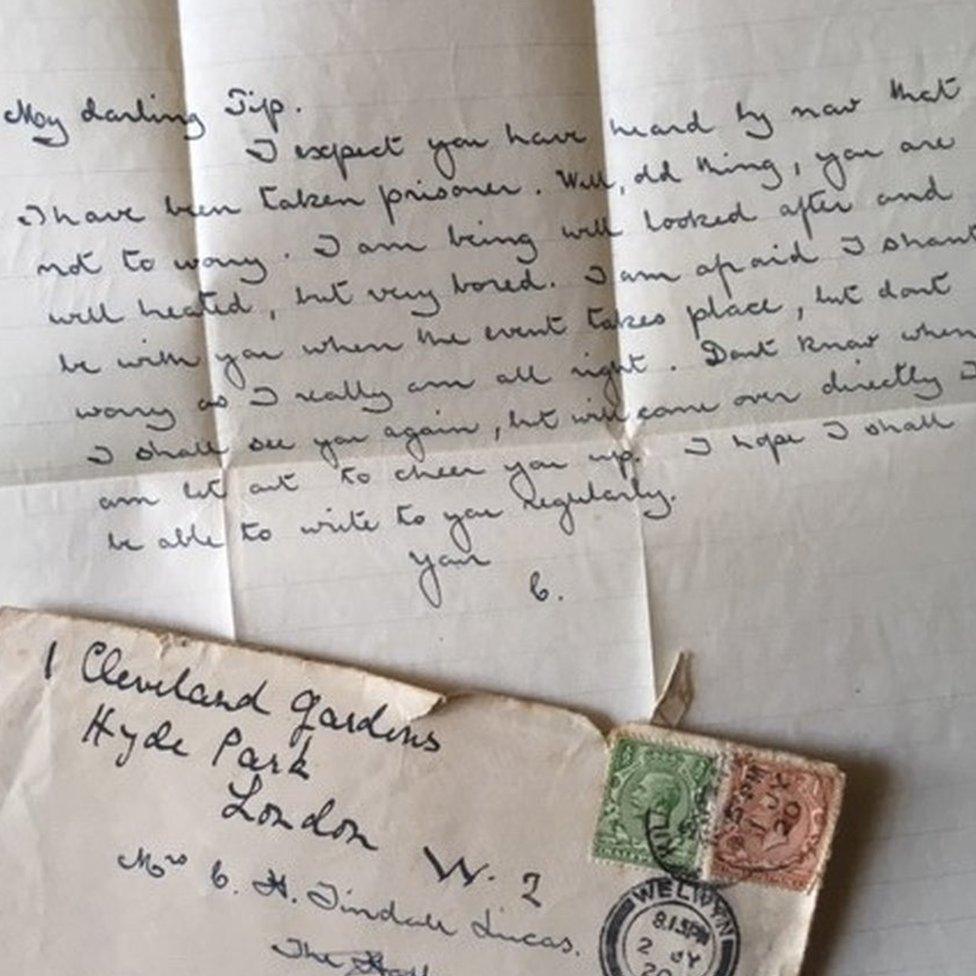
Lucas sent about 20 letters to his wife during his captivity

She managed to get news of the birth to Lucas by sending a letter to him addressed simply "to the IRA" - it's likely that postal workers sympathetic to the cause helped to ensure it reached the captive soldier.
Olive Carey, who conducted interviews with relatives of Lucas's captors for the Shannon Social History Project, said: "There was a genuine feeling that he was well-liked by all of the guards.
"He was a very affable sort of man who was easy to get on with. They played cards with him.
"He was particularly good at poker. He also played bridge and they taught him to play forty-fives (a trump card game). He also liked his whiskey and had plenty of help drinking it."
Jack Hogan, the son of one of the IRA guards, Thomas Hogan, told Ms Carey: "The trouble was that they couldn't keep him.
"He used to drink a bottle of whiskey every day and he used to beat them at poker. He cleaned them out at poker."
It seems that his facility at cards and his capacity for alcohol might even have played a part in the IRA's decision to let him go unharmed.
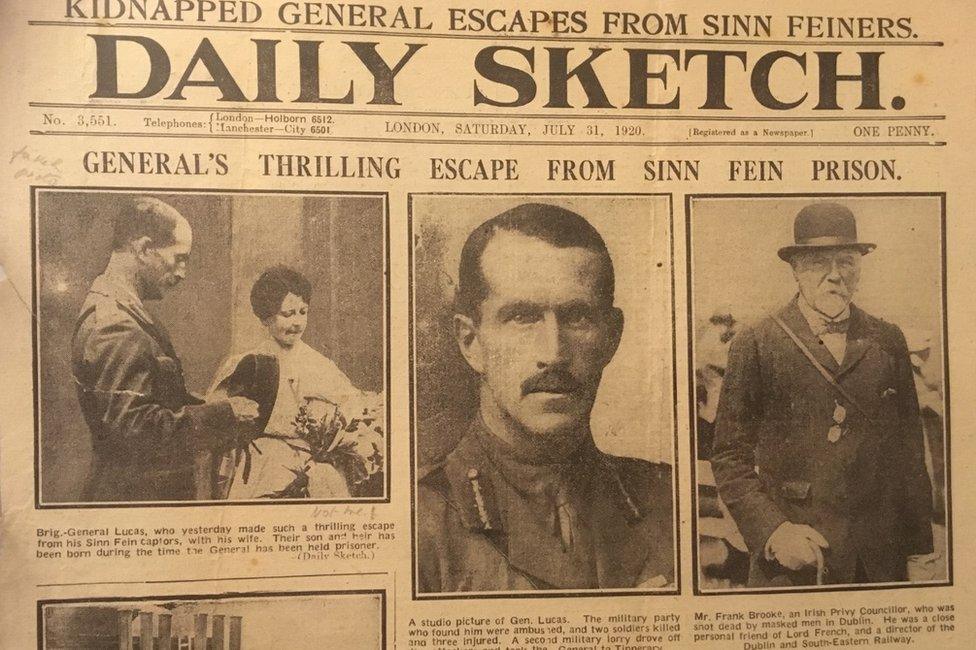
Brigadier General Lucas was the highest ranking soldier to be kidnapped by the IRA
Historian Tim Pat Coogan, whose books include The IRA and Ireland in the 20th Century, said: "They facilitated his escape because he was a good man for the whiskey.
"The IRA got him in Cork and transferred him to Clare and looked after him. The only problem was the whiskey. The commander got browned off by the bottle each day."
He said the unit also wanted to be rid of him because holding Lucas was tying down a lot of men.
"They'd already had the publicity from the kidnapping, and during the kidnapping very little else [in the way of IRA operations] could go on in the area," Mr Coogan said.
On 30 July 1920, following more than a month of captivity, Lucas "escaped" after his IRA guards relaxed the security around him.

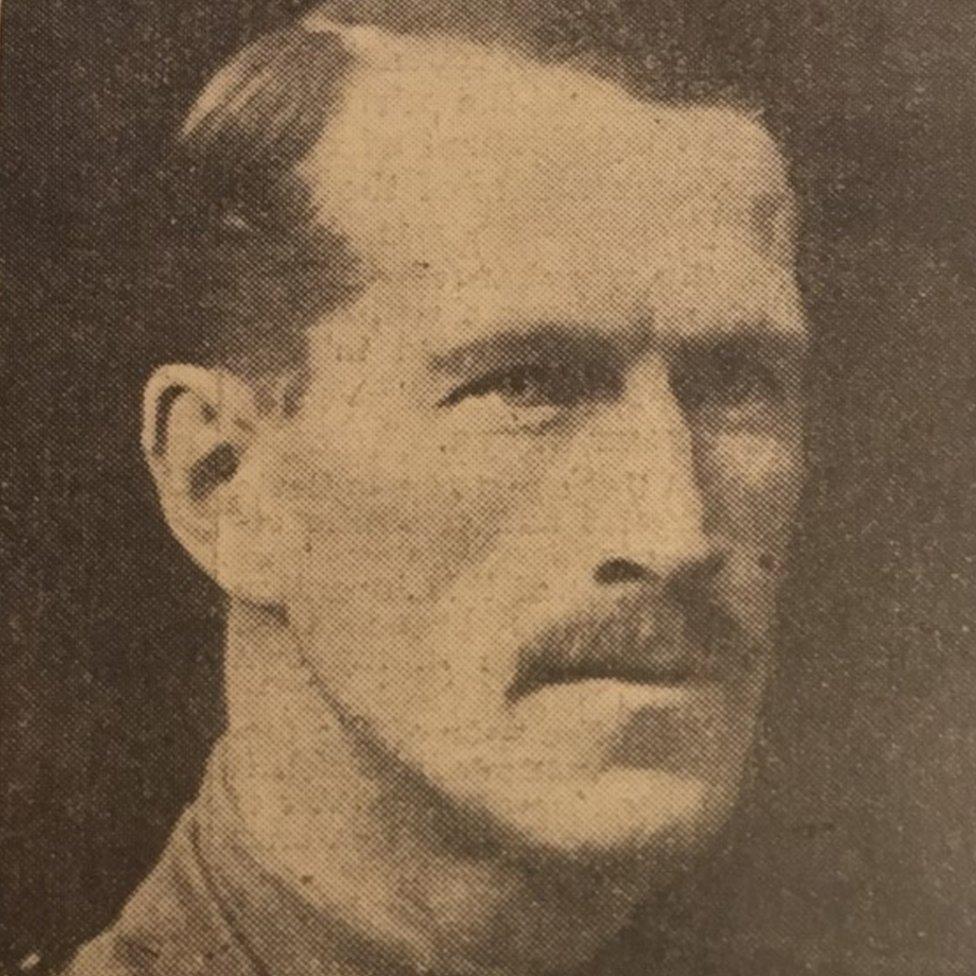

Cuthbert Lucas
Born in Hitchin, Hertfordshire, in March 1879
Educated at Marlborough College and the Royal Military College, Sandhurst
Commissioned as a 2nd lieutenant into the Royal Berkshire Regiment in 1898, he served in the Boer War from January 1900
A captain by the time the World War One broke out, he took part in the battles of Somme, Ypres and the Gallipoli campaign
Married Joan "Poppy" Holdsworth in October 1917
Took charge of the Fermoy Barracks in County Cork in October 1919
Retired from the British army in 1932 and went to live in Stevenage, where he took up embroidery
Died in 1958
Thomas Toomey, author of The War of Independence in Limerick, 1912-1921, said he believed there could have been some sort of deal between Lucas and the IRA because he does not seem to have revealed any of the 12 or so homes in which he was held.
"The odd thing about it is that General Lucas knew every house he stayed in, but none of the homes were ever raided. I believe there was a pact. They got to like him.
"Over my 20 years researching him, I never heard one bad word said against him."
For Mr Toomey, it's an example of a rare positive tale at a very troubled time.
"If you didn't know it was true, you wouldn't believe it."
- Published3 February 2019
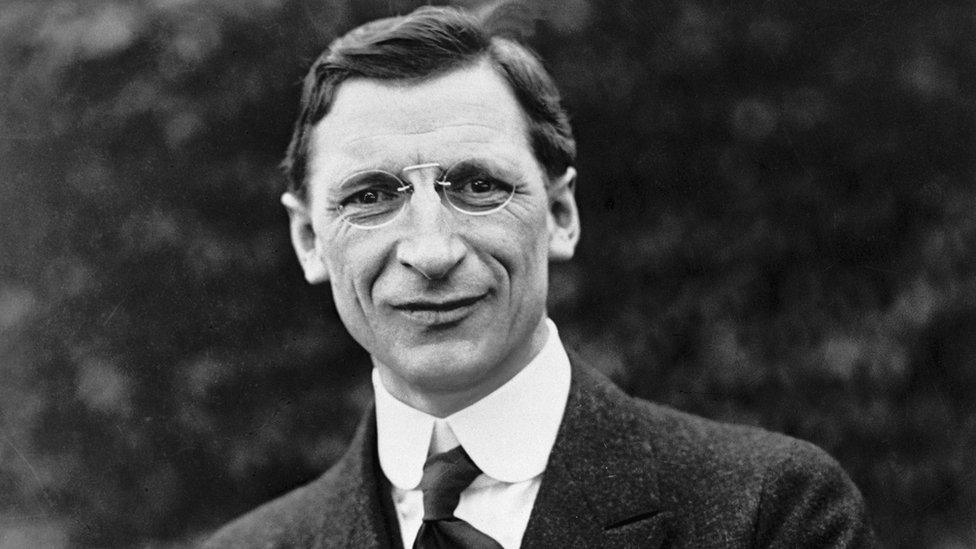
- Published7 January 2016
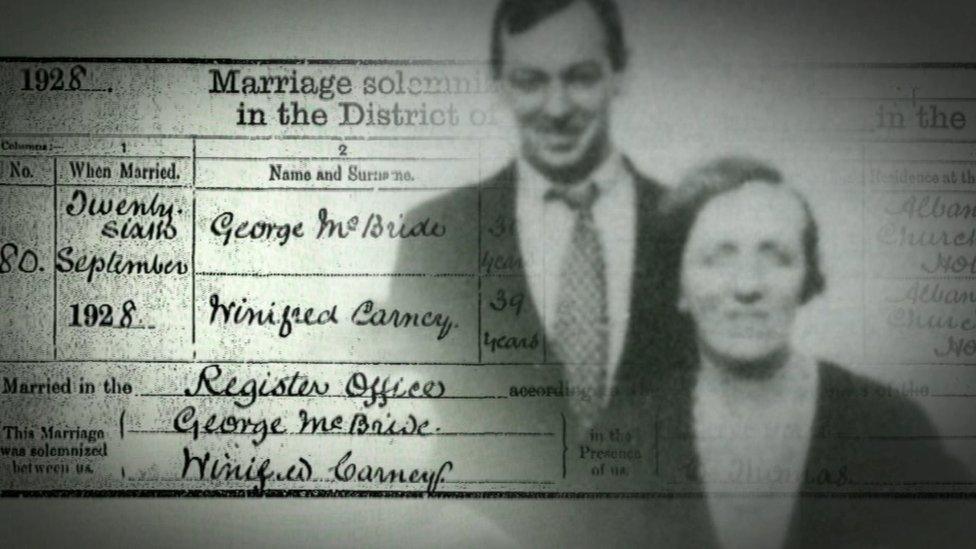
- Published17 January 2014
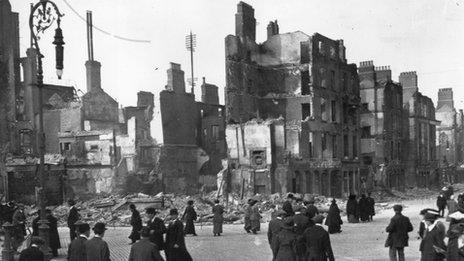
- Published13 September 2014
